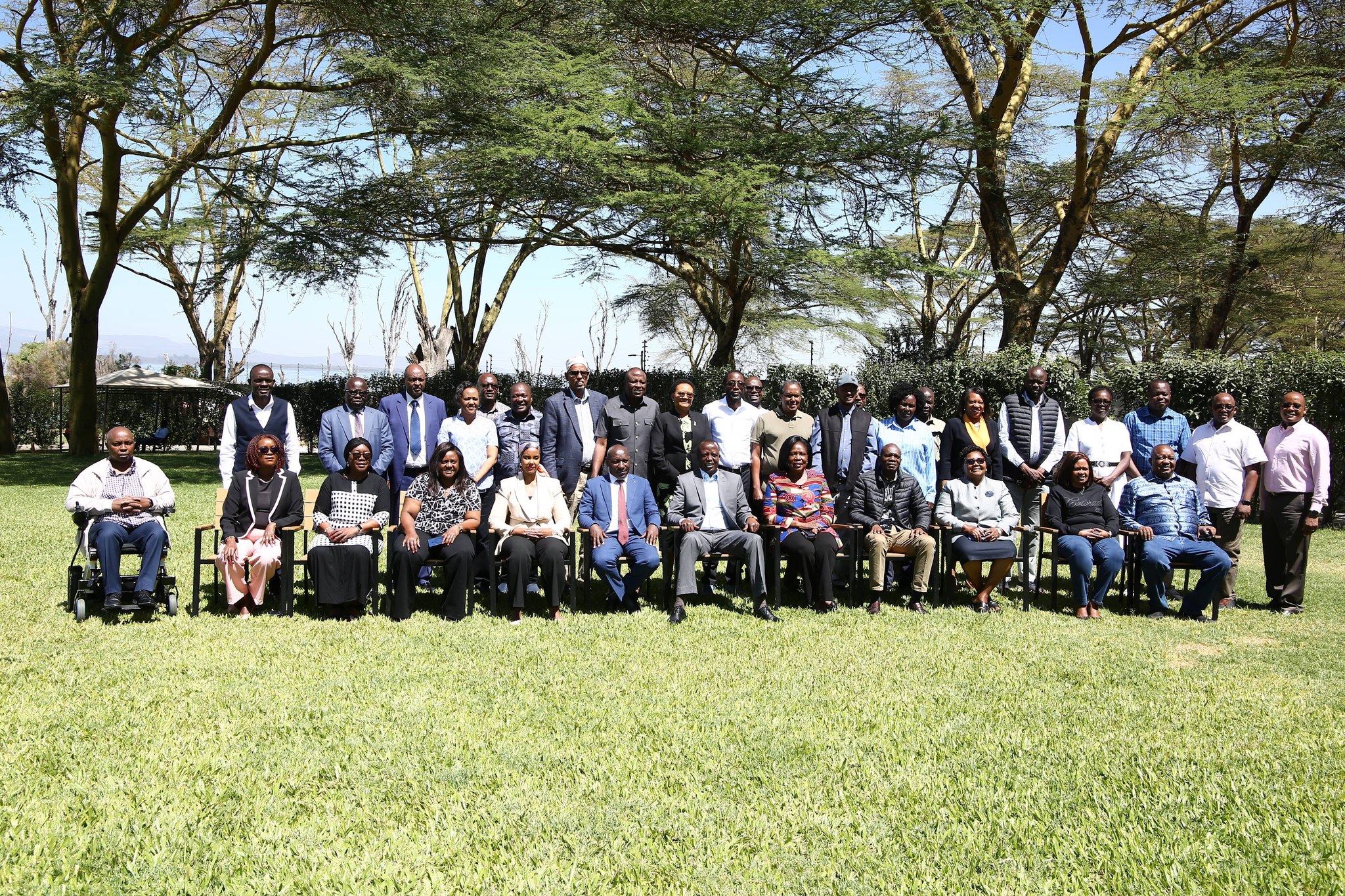In the quiet corridors of a rural primary school in Turkana, Mr Kamau, a senior teacher with over thirty years of service, arranged his lesson plans meticulously on the desk. His students shuffled in, eager for the day’s lesson, but his mind was elsewhere. He had just received a circular from the Teachers Service Commission about the new Career Progression Guidelines. For years, he had held Job Group L under the former scheme, a testament to his experience and dedication. Now, he found himself placed in Job Group J.
“This cannot be,” he muttered under his breath, glancing at the photographs of former students on the wall. “After all these years, and they just drop us like this?”
Mr Kamau’s story is not unique. Across Kenya, senior teachers—whether in bustling urban high schools, remote primary schools, or colleges preparing the next generation of educators—were grappling with a new reality: the path back to higher job groups was no longer automatic. To regain J and L, teachers had to assume administrative roles. This meant stepping out of the classroom and into positions such as deputy headteacher or headteacher, navigating interviews designed to test leadership, organisational skills, and readiness to manage staff and school operations.
In Nairobi, Mrs Wanjiku, a high school biology teacher with over 20 years of experience, faced a similar dilemma. She had spent her career mentoring students, supervising junior teachers, and coordinating science programs. Yet the new guidelines meant that her years of classroom experience could no longer restore her previous rank. She knew that to advance, she had to apply for a deputy headteacher position.
“I love teaching,” she confided to a colleague over tea in the staffroom. “Standing before a classroom, seeing a student understand a difficult concept—that’s my joy. But if I want to retire at the grade I deserve, I have no choice. I must step into administration.”
The tension between passion for teaching and career advancement weighs heavily on senior teachers. Some embrace the administrative path, seeing it as an opportunity to influence the school at a higher level. Others hesitate, fearing the added responsibilities of leadership and the potential loss of direct engagement with students.
This transition has introduced a new, often delicate, dynamic in schools. Teachers who were once senior figures now find themselves reporting to administrators who were previously their juniors. In Kisumu, Mr Otieno, a veteran high school mathematics teacher, once led his department with authority, mentoring younger colleagues and setting academic standards. When a younger teacher, Ms Njeri, who had recently completed a master’s degree and secured an administrative appointment, returned as deputy headteacher, Mr Otieno suddenly found himself taking directives from someone he had once guided in the classroom.
“It’s awkward,” he confessed to a colleague during lunch break. “I have taught her since she was a trainee teacher. Now she tells me how to run the department. I respect her qualifications, but I don’t feel the same sense of authority she expects me to obey.”
READ ALSO:
Machakos Deputy Governor decries ‘collapsing’ health and education sectors
This situation is mirrored in teacher training colleges and rural primary schools. Experienced lecturers and teachers, who have dedicated decades to guiding both students and junior staff, now work under administrators who were once students or less experienced teachers. The formal authority of these administrators—granted by their positions—sometimes clashes with the moral authority they have earned through years of teaching, mentorship, and community service.
For administrators like Ms Njeri, the challenge is real. She must enforce policies, evaluate performance, and manage staff who are older and more experienced than herself. “I try to be respectful,” she admits. “I consult the senior teachers on major decisions. But at the same time, I have responsibilities I cannot ignore. Gaining their respect is harder than I expected.”
Senior teachers, too, face difficult choices. They must navigate the new hierarchy carefully, balancing pride, professionalism, and the recognition that the system now values formal administrative roles alongside classroom experience. Many choose to support administrators, offering guidance and expertise to ensure that the school functions effectively, even if their moral authority has been compromised.
The consequences of these decisions extend beyond personal pride. Teachers who take on administrative roles gain a pathway to promotions from Job Group J to K and eventually L. For example, a high school deputy headteacher coordinates departments, supervises examinations, and ensures both staff and students meet national standards. A college head of department manages faculty schedules, mentors trainee teachers, and oversees the delivery of the curriculum. A primary school headteacher balances classroom responsibilities with community engagement and school performance. Those who navigate these roles successfully can retire having held three job groups—J, K, and L—symbolising the journey from classroom expertise to institutional leadership.
Those who remain classroom teachers, however, face a different reality. Their career progression is capped at Job Group J, regardless of decades of service, mentorship, or past achievements. Mrs Achieng, a long-serving mathematics teacher in Kisumu, decided to remain in the classroom. “I know my students need me,” she explained. “I may not get L again, but my work matters every day in this classroom.” Her choice reflects the devotion many senior teachers continue to show, even when formal recognition is limited.
The human dimension of these changes is profound. Senior teachers are mentors, community leaders, and role models. In rural primary schools, they may be the only stable adult presence for children facing economic hardship. In high schools, they guide not only students but also younger teachers navigating the profession. In colleges, they shape the very future of teaching. Yet, under the Career Progression Guidelines, these contributions only translate into higher job groups if teachers take on formal administrative duties.
Mr Kamau, after weeks of contemplation, decided to apply for the headteacher position. The interview was gruelling, testing his knowledge of school management, budgeting, and staff supervision. When the results came, he had been appointed. Walking through the corridors of his school now, he carries a dual identity: mentor in the classroom and leader of the institution. His story reflects both the challenges and opportunities embedded in the new system.
Across Kenya, similar stories unfold daily. Teachers must weigh love of teaching against ambition, confront former juniors now in positions of authority, and navigate the human dynamics of respect, hierarchy, and mentorship. The Career Progression Guidelines highlight a broader truth: formal promotion does not automatically confer moral authority. Administrators must earn respect through competence, fairness, and humility. At the same time, senior teachers must reconcile their expertise with the realities of the new hierarchy.
Ultimately, the system underscores the evolving nature of teaching careers in Kenya. Advancement depends not only on years of experience and classroom excellence but also on leadership, adaptability, and strategic career decisions. For senior teachers, the journey is no longer just about teaching—it is about legacy, service, and navigating the delicate balance between authority and respect. Whether in a bustling college, a dynamic high school, or a quiet rural primary school, Kenya’s educators continue to shape the future, leaving an indelible mark on their students, colleagues, and communities, even as the letters J, K, and L trace the trajectory of their careers.
By Khamati Imbutsi
You can also follow our social media pages on Twitter: Education News KE and Facebook: Education News Newspaper for timely updates.
>>> Click here to stay up-to-date with trending regional stories
>>> Click here to read more informed opinions on the country’s education landscape
>>> Click here to stay ahead with the latest national news.






